Did you know Garden City Community College is one of three community colleges that have access to a cadaver lab? The cadaver lab is a laboratory where students get to have hands-on training and a full visual of what they are learning about in the anatomy class by dissecting the human body. The human body is a miracle and a complex yet organized machine that works nonstop to keep people alive. Sara Gaul, an anatomy professor at GCCC emphasizes the complexity of the human body.
“We idolize people for their accomplishments or creations like Bill Gates or Steve Jobs, but we as a society cannot agree on who created a human, such a phenomenon, it is one of the most flawless and forgiving machines that I’ve ever witnessed.”
Gaul has had tons of experience in the hospital apart from teaching: she has experience with cardiology, pulmonology, plastic surgery, diabetes, radiation oncology, healthcare-based entrepreneurship, investing, and autopsies. Gaul has witnessed different surgeries, was a visitor to cadaver labs, and now runs her cadaver lab. She believes there is something special about cadavers rather than beautifully illustrated images and simulations of the human body for an anatomy class. Gaul emphasized,
“I have never looked at two bodies that are the same, just like our faces look different, the insides of their bodies look different.” This is because people have different lifestyles, make different choices, and have different genetics. It is fascinating for students to get to see up close that no two people are the same, inside or out.
The cadaver labs are a benefit to students education-wise, but also a benefit to society. “It is the ultimate contribution to society, they are continuing to be a teacher or utilize their life for educational purposes long after their soul has left.” Gaul said. The cadavers give students the opportunities to potentially create new medicines, surgery techniques, and other ways of improving the human body for others who are living. The University of Kansas, which GCCC works for in the lab, has a willed body program online that Gaul has attached to her student’s classes for people interested in donating to the education. Gaul, a donor, said, “I don’t have any use for this, if I can continue to teach people and they can come up with a cure, or somebody is a better doctor because of it, yes please.” The cadavers donate their most valuable part of themselves for nearly zero cost knowing they could potentially be saving future lives. Terry Lee started the GCCC program and with perseverance and follow-up, cadaver labs became an opportunity for students.
Today, Gaul does autopsies at St. Catherine Hospital apart from teaching and has seen various cases. Gaul said, “I have seen broken vertebrates, completely clogged arteries, calcified aortas, to polycystic kidney disease, you just see everything and it is cool to see the story that it tells.” An autopsy is a medical examination of the human body after a questionable death. Students at GCCC have the opportunity to witness and work with different cadavers that tell different stories to give them more experience for their future occupations.
Students at GCCC study their bodies for over four months and document everything they do each day in the cadaver lab; this helps them to recall things they’ve seen so they don’t forget. The students are participating in a very in-depth autopsy and getting to go through the body layer by layer. Gaul, being a part of both worlds, finds it very fascinating getting to see in-depth autopsies because the autopsies at the hospital are primarily organ-focused.
“We are going through skin, fat, muscles, and bones.” Gaul said. The students are partaking in one of the most vulnerable and in-depth autopsies they might ever experience.
Overall, students at GCCC who want to study the human body have access to the most beneficial tool. The cadaver lab is a unique way for students to learn and have hands-on practice with the makeup and functions of a real human body. The opportunities at GCCC are endless and for students studying human anatomy, it does not end with corpses.
“I go to medical museums to look at stuff and see what they have that is fascinating, and this college has better specimens than some of the museums I have been to.” Gaul said. These specimens are parts people have pulled out that are fascinating. Here at GCCC, they have a spinal cord with every nerve coming off of it and they get to keep it for future classes. These specimens found in the cadaver labs are used in the anatomy classes apart from cadaver labs as well to help the students gain visuals. The human body puts up with a lot and is incredibly amazing, and the people involved in exploring it are in for a never-ending puzzle.
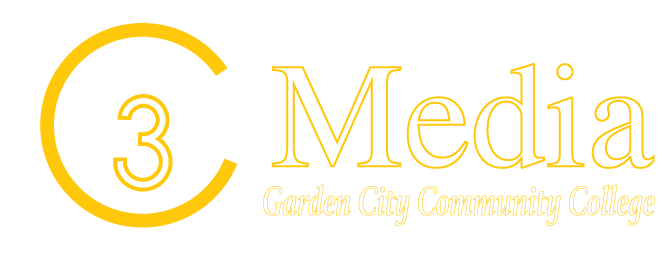



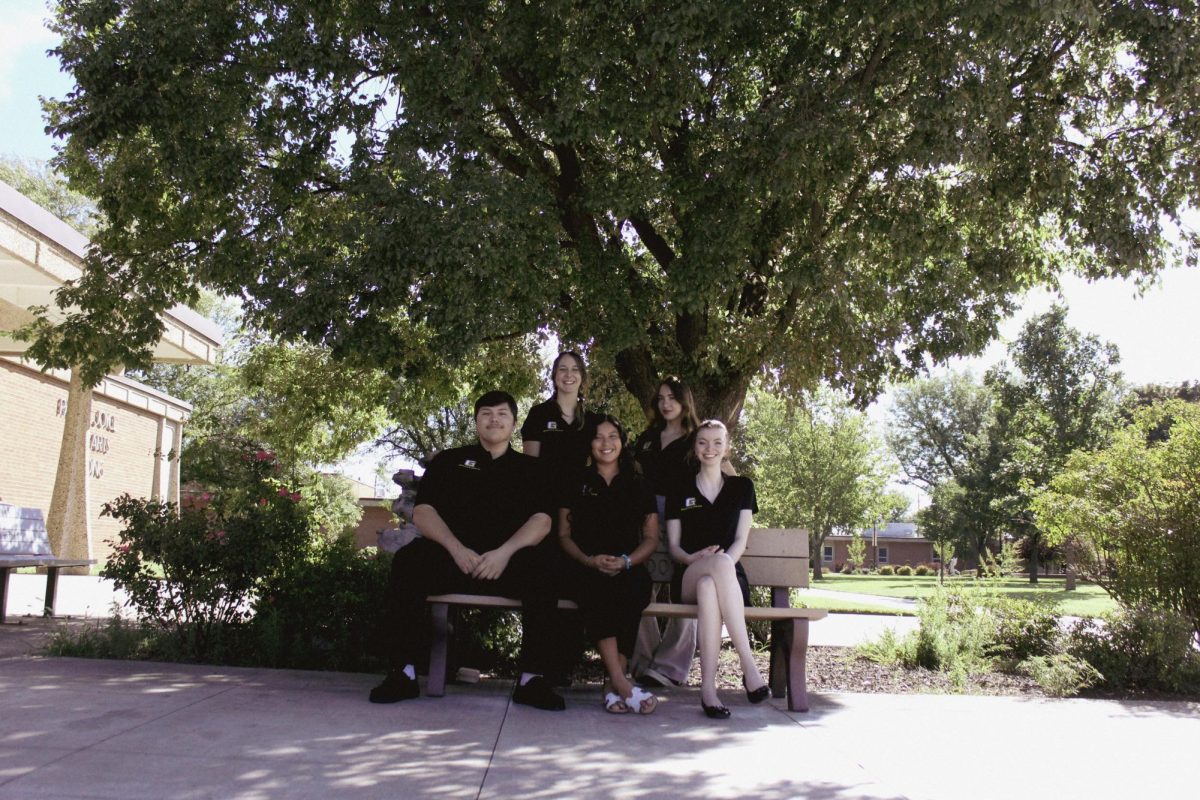
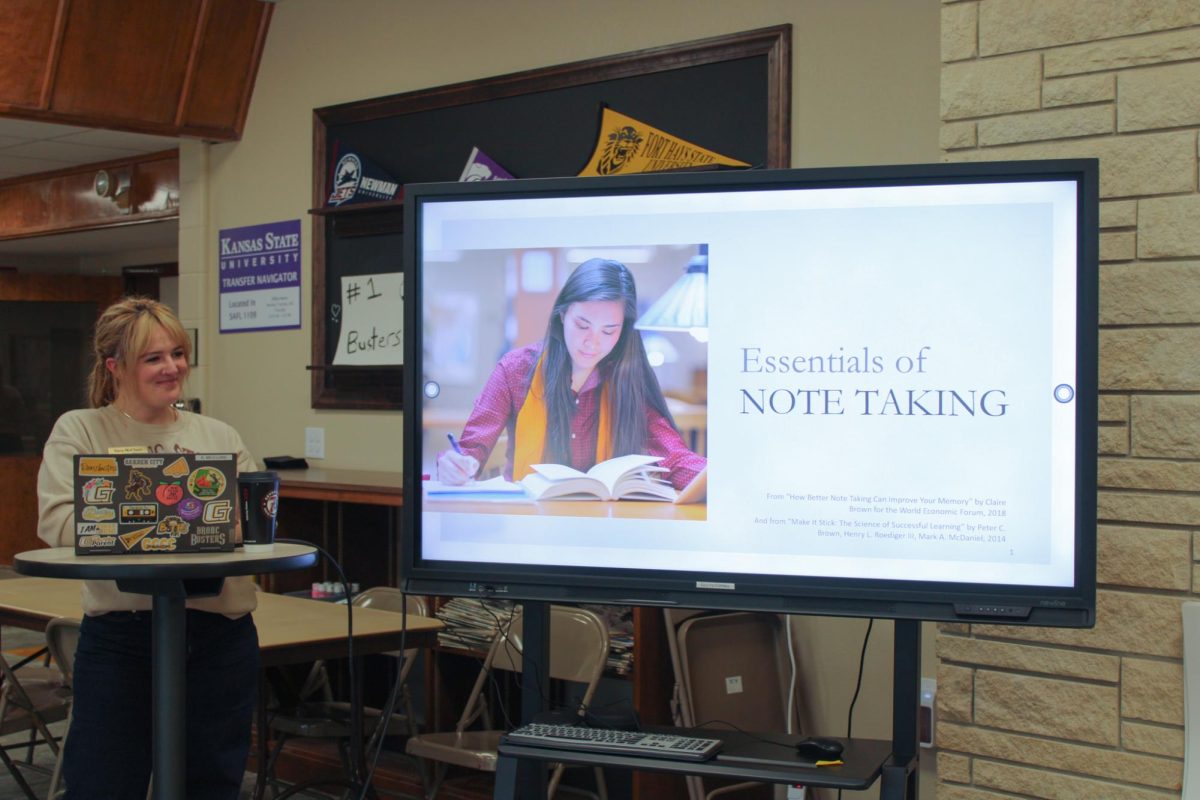
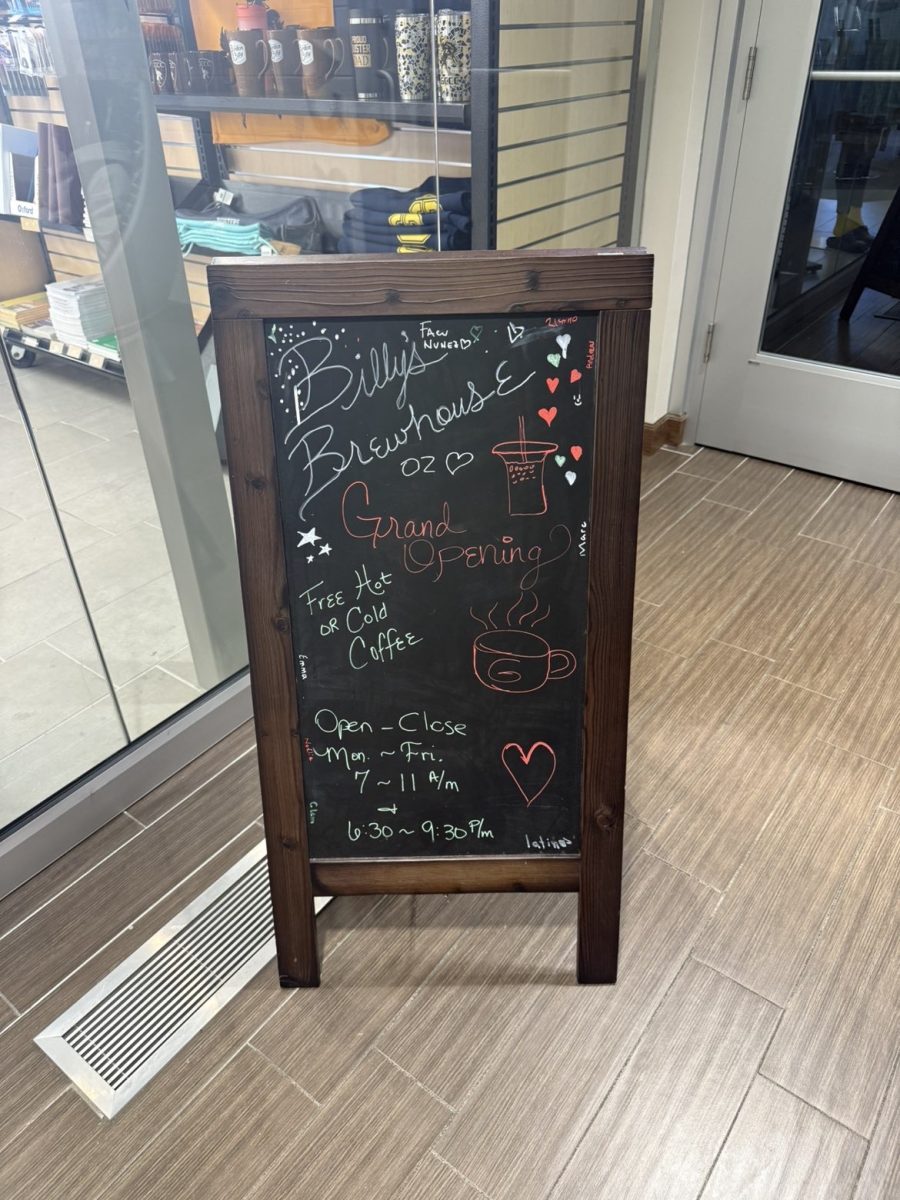
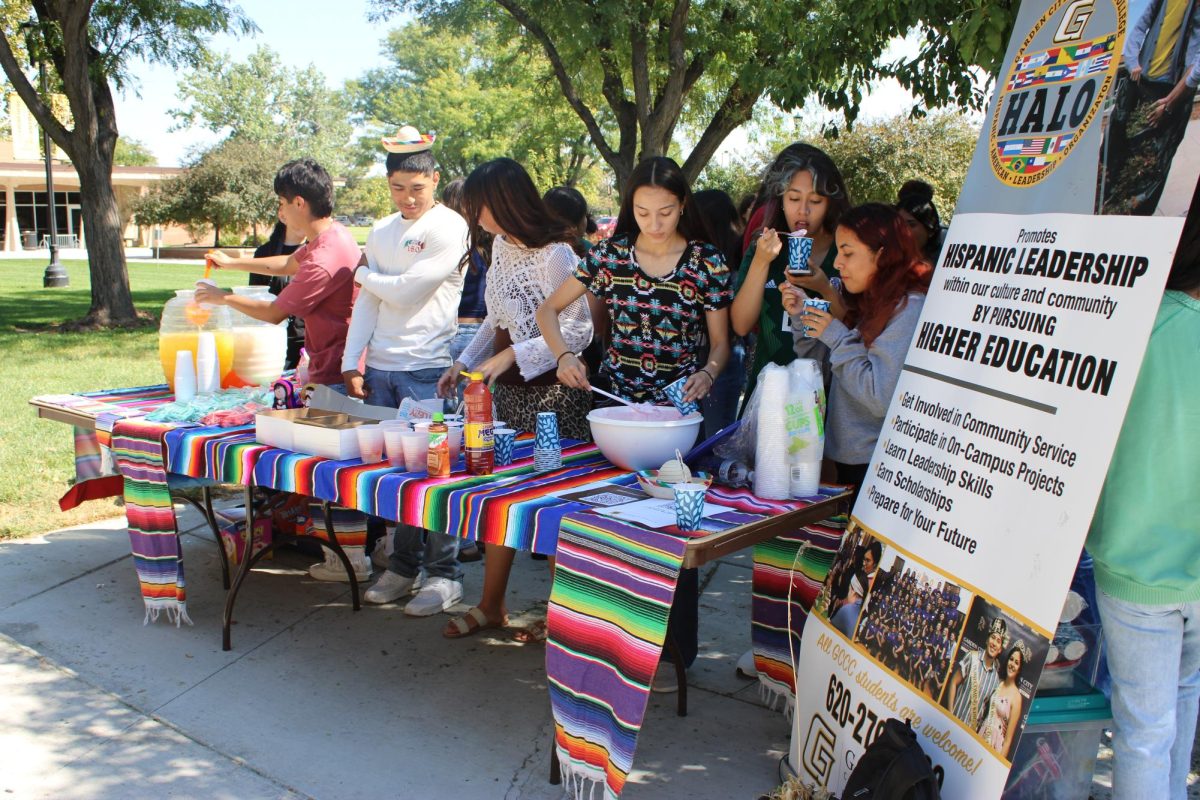
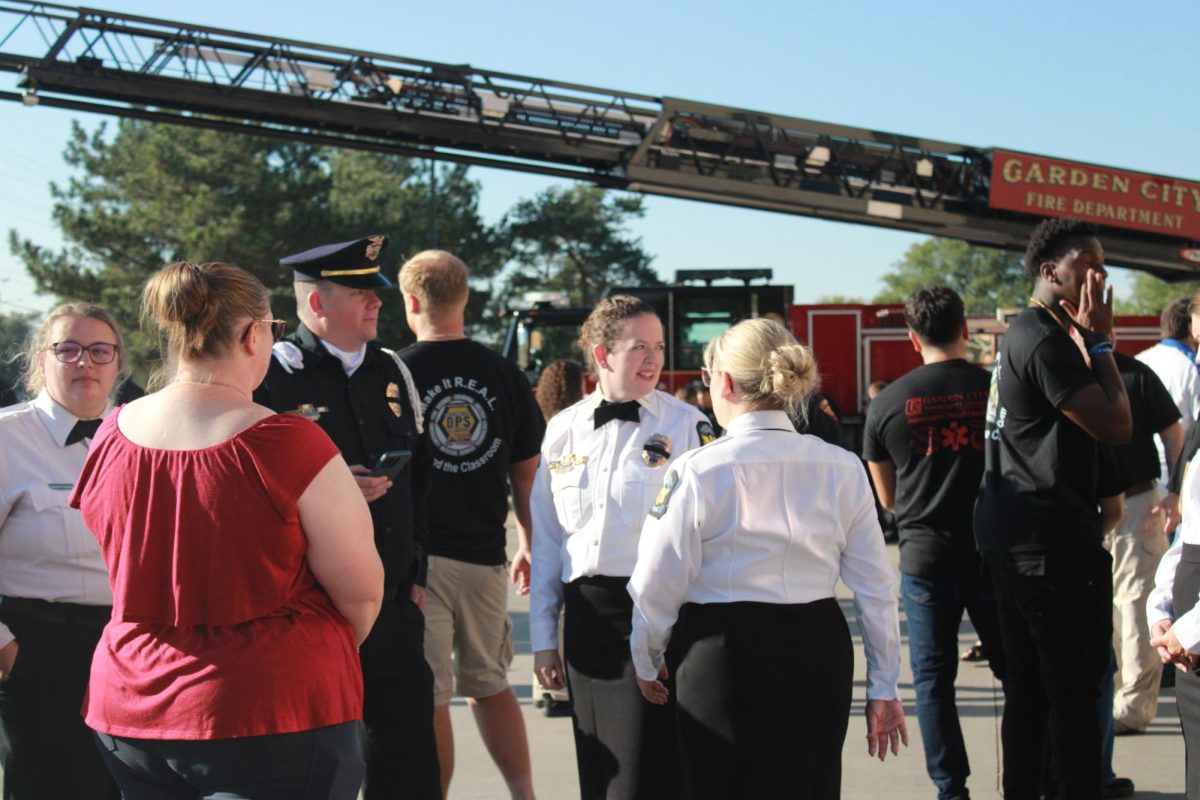
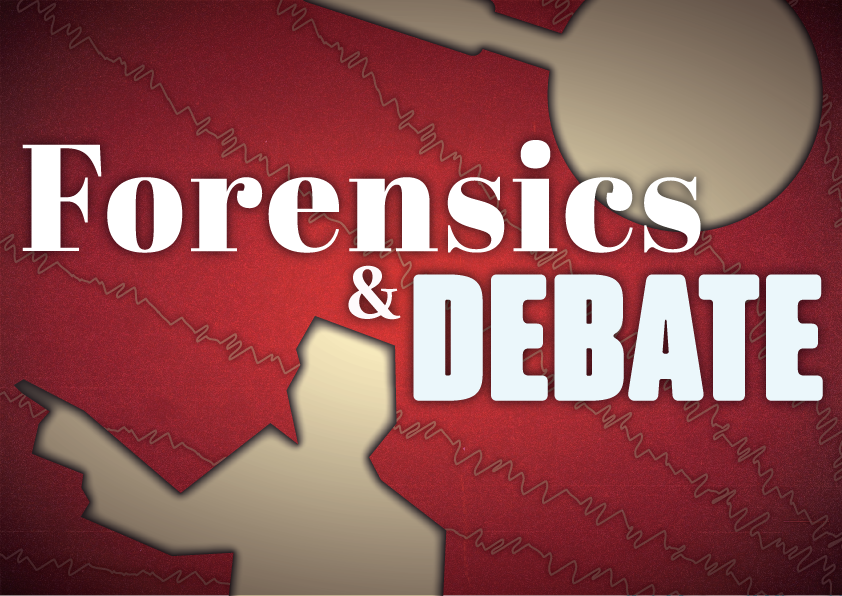
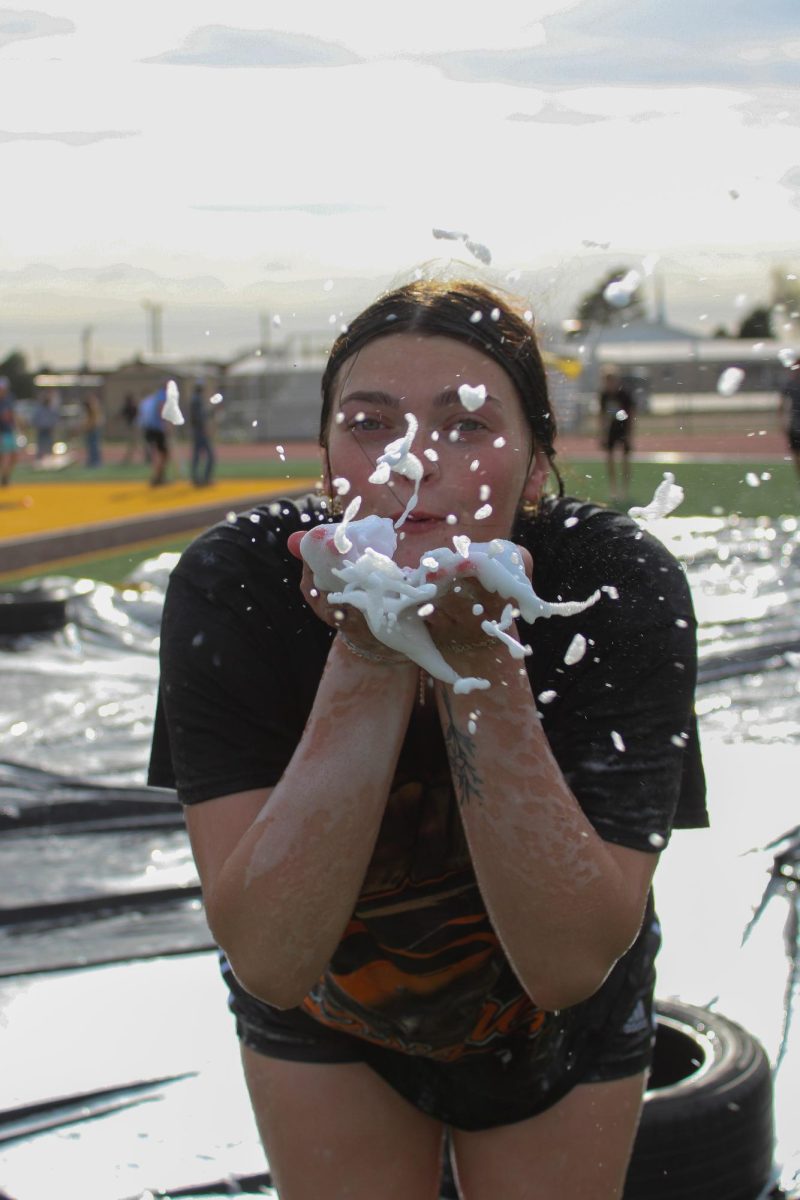
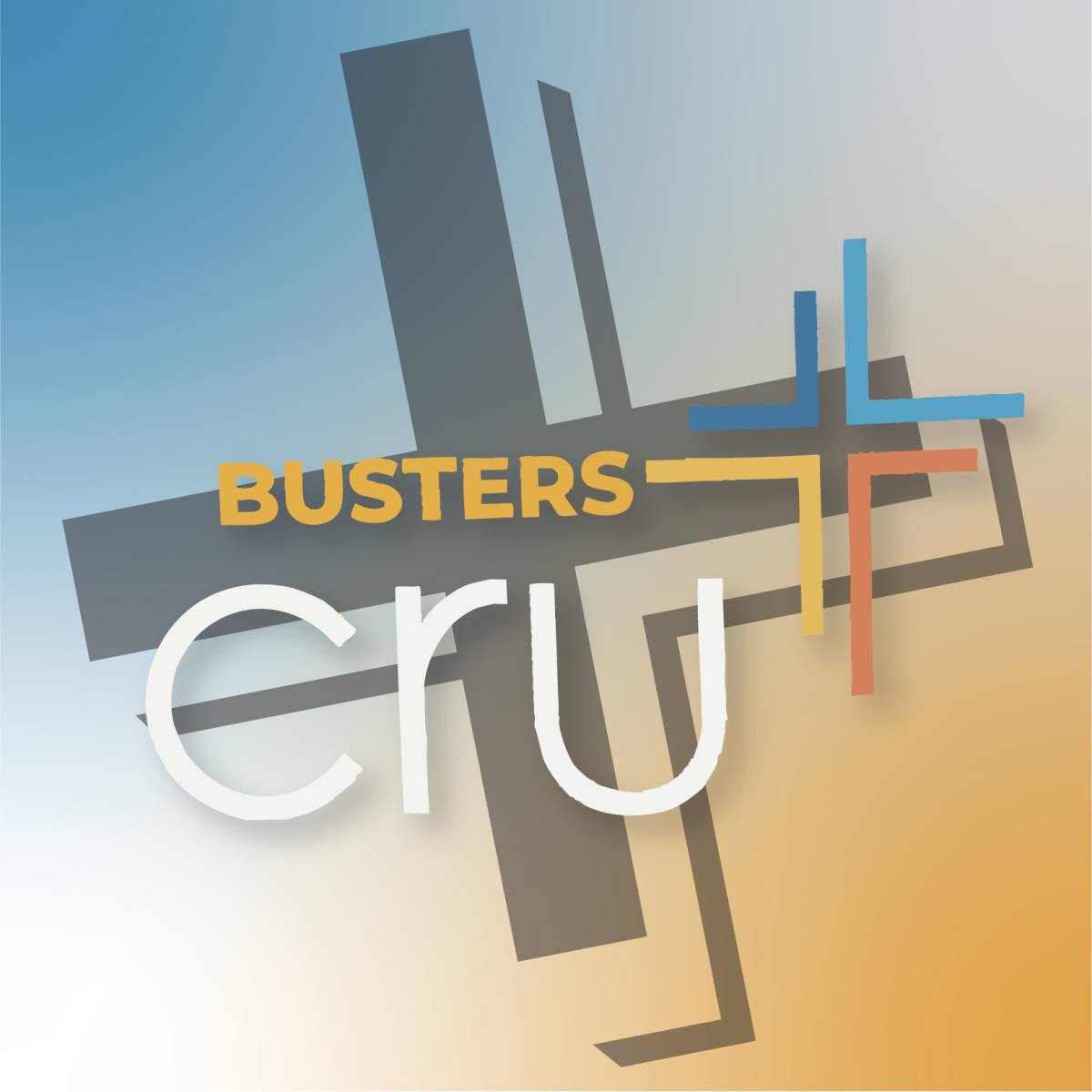



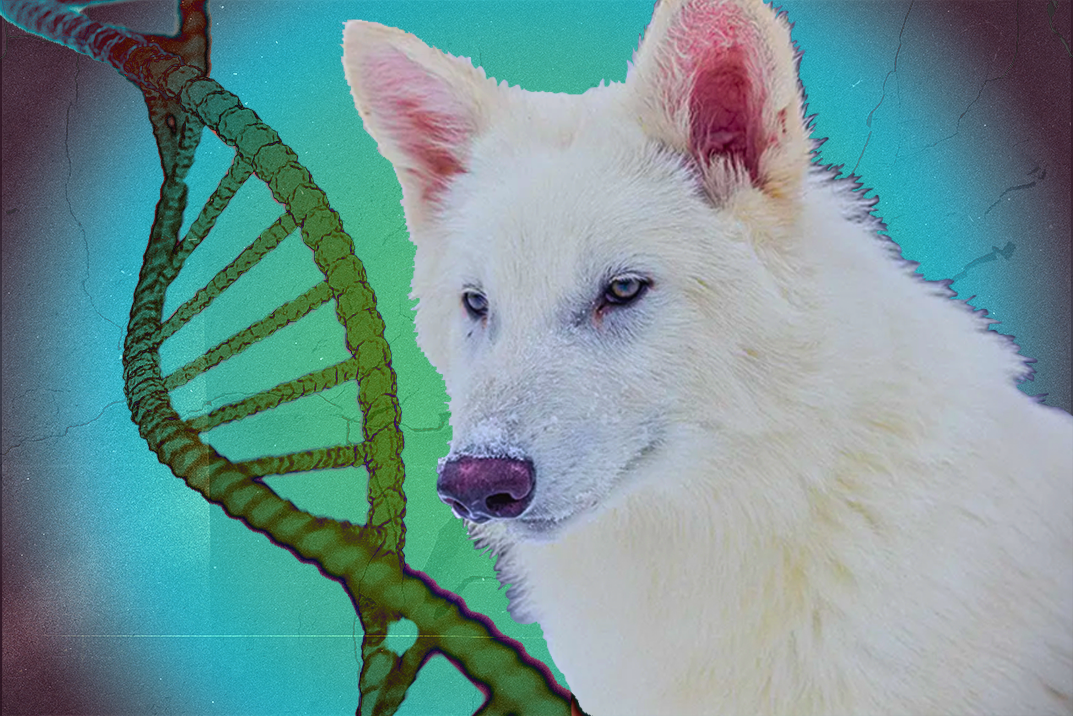
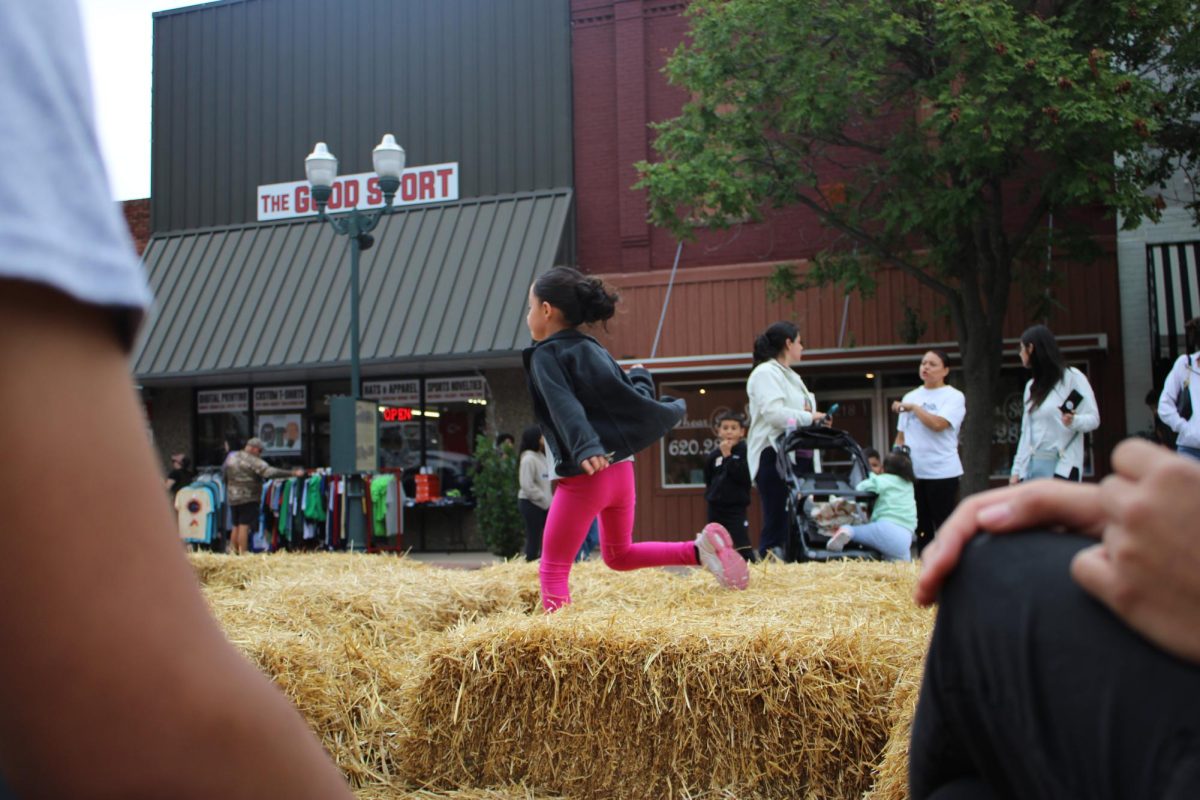
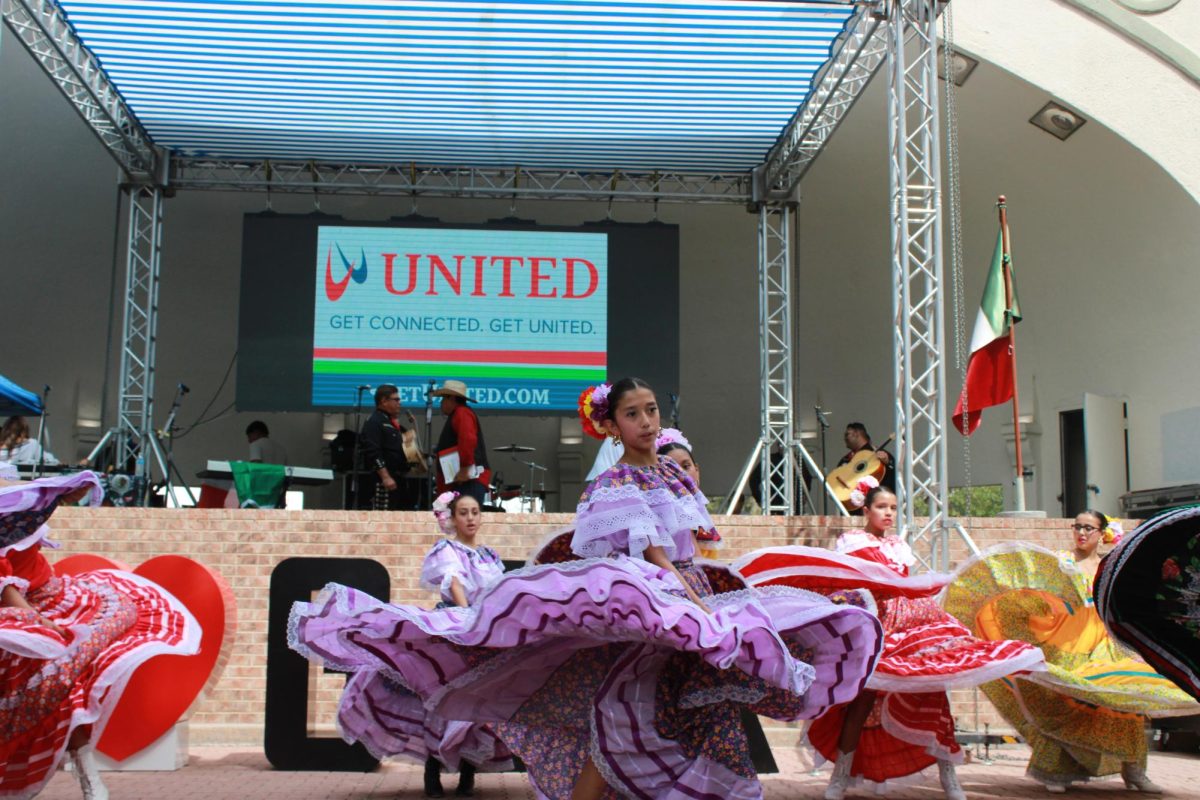
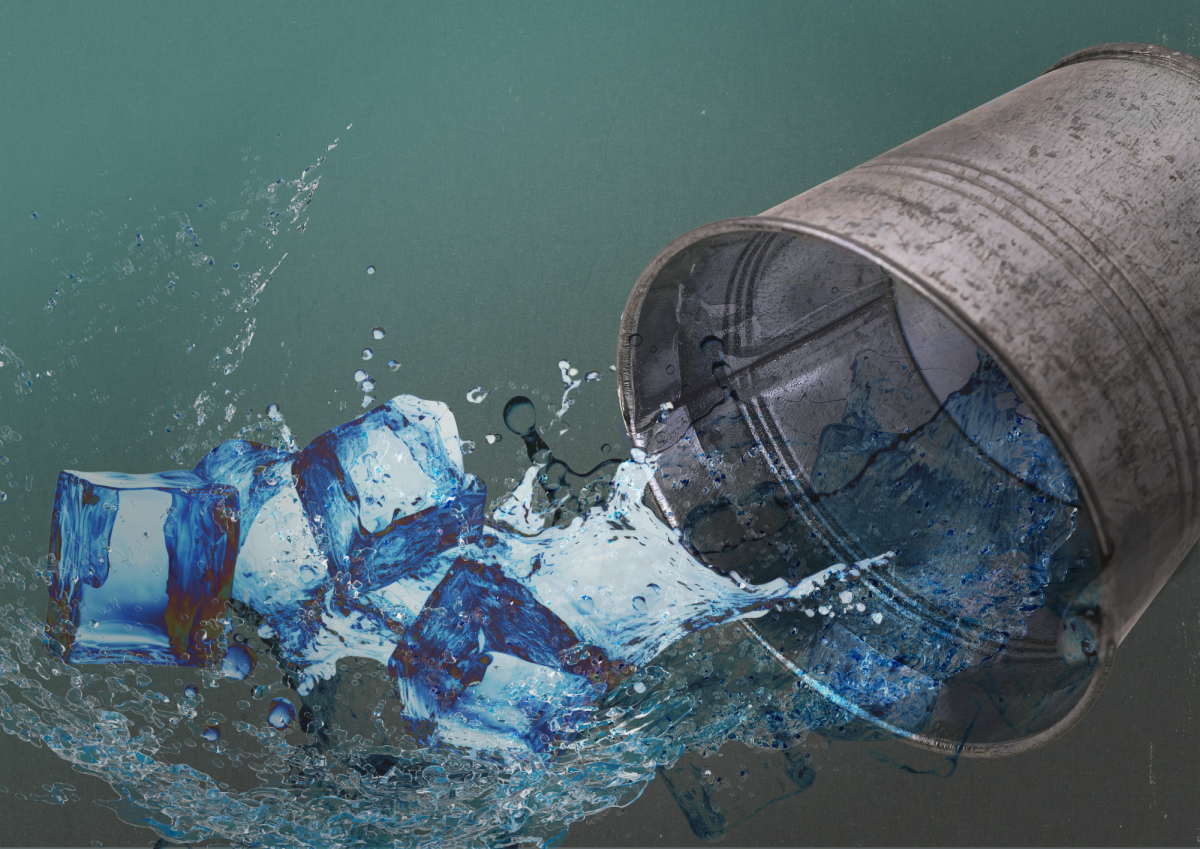

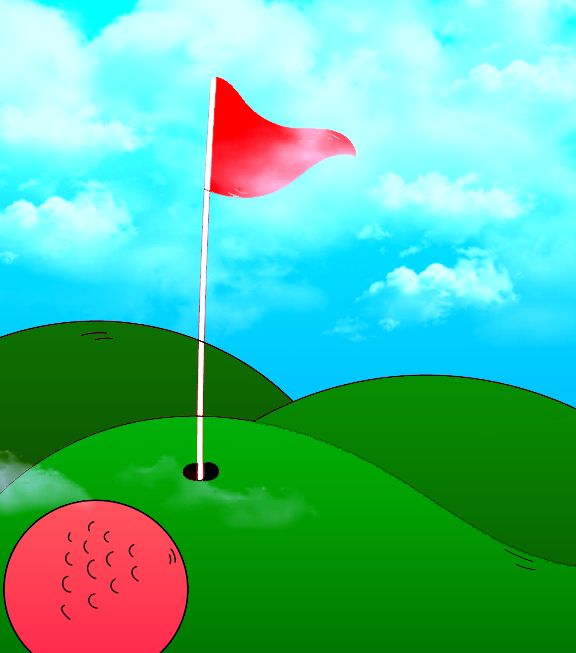
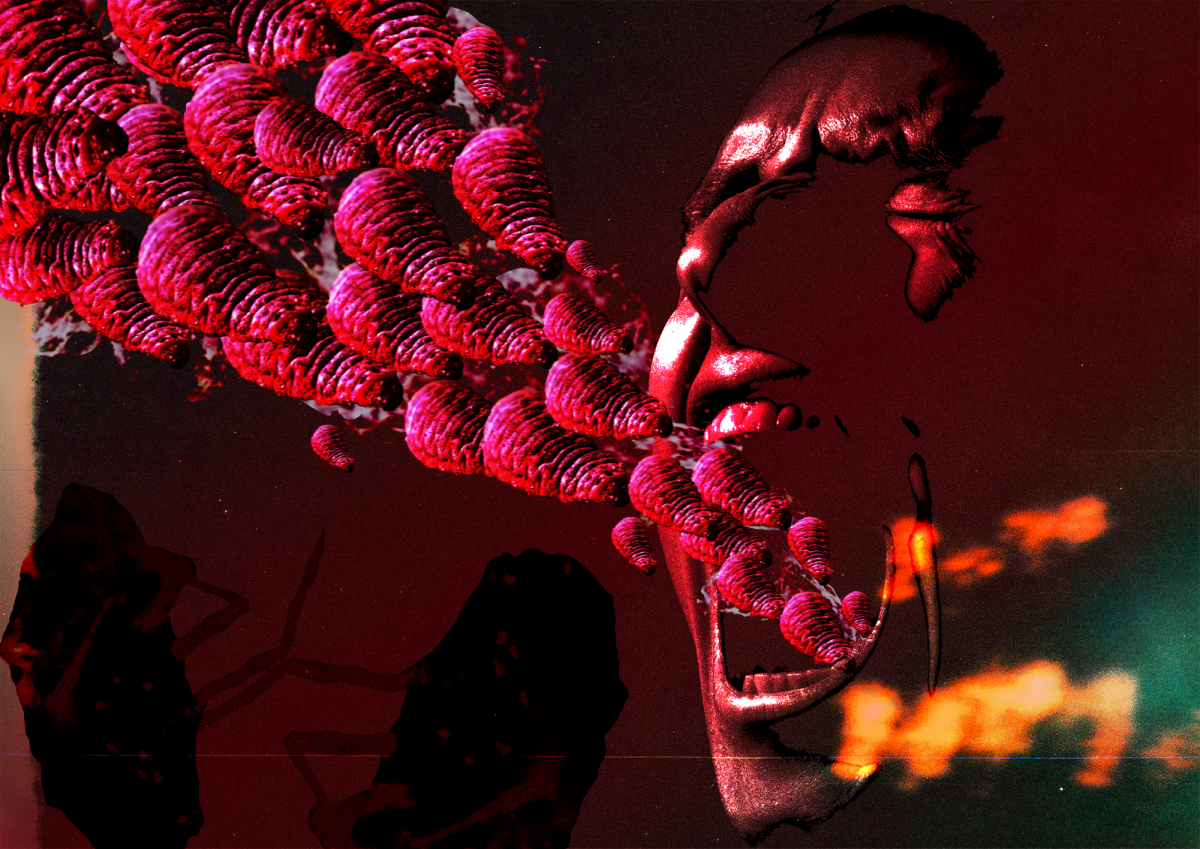
Mayra • Oct 27, 2023 at 2:21 pm
Having this opportunity to do hands on in the cadaver lab room has really given me new knowledge of understanding the anatomy of the human body. To physical hold an organ and look into it, is intense and a privilege. Garden City Community College really does offer visual, hands-on and lectures from our professional instructors that are fully engaged with their students that have inspired us to continue our education.
Shelby Estrada • Oct 23, 2023 at 9:00 pm
I think the cadaver labs is such a cool place to get visuals of what we are learning in class. I am a visual learner so it is easy for me to gain the knowledge through seeing it in the cadaver lab. It is so interesting to me to see how a person’s lifestyle affects their bodies without them even realizing it. It amazes me when I get into the lab and see an actual human body in there. Knowing our college is one of the few colleges with a cadaver lab is pretty cool.
Noel • Oct 23, 2023 at 1:17 pm
When I first came to garden city I did not know much about the academics. I remember on the second day of class when we came and saw the cadaver I was surprised as even at my four year university we did not have them. I feel the experience to learn from the cadaver has been an important one as we get see the human body in its entirety. This experience has enhanced my learning as seeing things in person instead of a textbook make it better to learn
Gracie • Oct 20, 2023 at 11:49 pm
I’ve loved being apart of this class so much because of the opportunities the cadaver lab has offered me. It has been so much easier to learn things because I have been able to actually see them on a body. One of my favorite things that I have been able to do is hold a real human brain. I would definitely recommend anyone to take this class if they are wanting to learn more about the human body. There are things in the body that I would’ve never thought looked the way they do, but the cadaver lab has provided me with with the resource to see what it all really looks like.
Ashley Chapa • Oct 20, 2023 at 11:46 pm
I really enjoy the cadaver lab because I have learned so much already. I got to hold an actual human brain. I got to see what a uterus looks like with the ovaries. I learned that synovial fluid is what lubricates our joints and I also got to see it. I got to see what an esophagus and trachea looks like and learned that the trachea is anterior to the esophagus. I got to see the kidneys and one of them had a big kidney stone coming out of it. It was so interesting to learn kidney stones happen because of the intake of too much sodium and lack of water intake.
Brianna Oceguera • Oct 20, 2023 at 11:46 pm
This is such a great, will written article by Mya! I am in Anatomy and Psychology and have learned so many things so far. The cadaver lab has helped in so many ways because it shows everything we are learning but on a actual body with actual examples. I have seen actual human fat, muscles, lungs, and so much more. Some of my favorite things I have seen recently was the synovial fluid that they found in the cadavers knee. It was so amazing to have been able to see that in person, the consistency of synovial fluid is unreal. Another thing that I seen recently was a set of fetus’s that were prematurely born due to the placenta being torn. Being able to see all these things while learning about them is truly an amazing opportunity that we have here in Garden City Community College.
Giselle Lira • Oct 20, 2023 at 11:02 pm
The cadaver lab has been an amazing learning experience to have around. Being able to see the organs and see what they actually look like in the human body really helps put the information into perspective. Rather than just looking at the organs through pictures or the textbook. It really is a big difference to how they actually look like. We got to see what healthy lungs look like vs how the lungs of a person who smoked looked. You were able to see how spongey they looked. Being able to hold a brain or see how the synovial fluid in the knee looks was pretty cool. Being able to see how the ear works seeing where the sound waves will hit the ear drum. Overall, it is a great learning experience.
Celeste • Oct 20, 2023 at 8:55 pm
The cadaver lab here at GCCC really is amazing! Learning through pictures and videos is nothing like being able to see everything in person. Every time I see the body, I learn something new that I did not know before. Such as how small the uterus is, I never would’ve imagined something so small is where we all came from. Another thing I’ve learned is how our heart can be a different size than others. For example, someone who has had bypass surgery or a pacemaker, can have a bigger heart compared to someone healthy. Something else I’ve learned is how having excessive fat affects many parts of our body. Overall, I’m very thankful to have the opportunity to see a cadaver lab and have so much respect for those who donate their body.
Celeste • Oct 20, 2023 at 8:33 pm
The cadaver lab here at GCCC really is amazing! Learning through pictures and videos is nothing like being able to see it in person. Every time I see the body, I learn something new that I did not know before. Such as how small the uterus is, I never would’ve imagined something so small is where we all came from. I’m very thankful to have the opportunity to see a cadaver lab and have so much respect for those who donate their body.
Holly Garcia • Oct 20, 2023 at 2:24 pm
The most exciting thing I took away from this class was how we dissected a cat in the lab, where I was able to feel every organ in the palm of my hand and discover what it was called. I experienced firsthand the sensations of a heart, lungs, kidney, stomach, brain, tongue, eyes, and, I think, an ovary. My favorite part of class is when we examine the various organ parts in a corpse. Every time I attend, I want to learn something new. We examine parts of the body that are hidden from view. I discovered and felt the size of the real heart and learned about it. In my opinion, seeing something in person rather than just looking at a picture would help you learn it more effectively.
Abby Gillen • Oct 20, 2023 at 2:07 pm
I am a student here at GCCC, who has been fortunate enough to work with cadavers and gain knowledgeable skills. While in class, we have not only discussed various health conditions, but visually saw and examined them; to me, I grasped the understanding of how the human body works better because it was physically in front of me and I was able to put my hands on it. I have found studying the heart to be the most intriguing, since it does so much for our bodies it’s fascinating to know how it works and what underlying conditions can cause a defect in how It operates. One of the conditions we studied was a coronary artery bypass graft, an open heart surgery and the after effects of each.
Ayaan • Oct 19, 2023 at 7:19 pm
I perceived how the internal organs of our body work together and their positions in the body. I figured out that the esophagus takes food to the belly and lies at the back of the trachea, but the trachea transfers the oxygen to the lungs. Besides, I saw the synovial fluid on the knees found inside the joints to protect against friction. The cadaver lab helped me see inside my body and its antinomical structure. This lab teaches me more knowledge that will help me in my future career.
Leslie Contreras • Oct 18, 2023 at 10:19 pm
Whenever we have had the chance to see the cadaver and organs of the body, I am completely fascinated. I have learned how even the simplest yet complicated body parts work together as a team to move and keep our bodies alive and healthy. For example, tendons, ligaments, bones, and muscles work together, flexing the muscles to help us walk while the bones help us stand tall. Getting to have a first-hand experience of seeing what the inside of our skulls looks like and how all ears, nose, and mouth have their individuality yet come together, connecting all those systems and areas into one. Not only have I learned how our organs and systems work together, I have learned a lot about why it is essential to keep our bodies healthy. Avoiding a lack of good diet and exercise can change your life and body forever.
Diana • Oct 18, 2023 at 9:43 pm
The cadaver lab has really taught me lots about the human body. During my short time in my AP class, I was able to hold a brain, hold a heart, and dissect lungs. It was also the first time I had seen a cadaver which sounds very gnarly but was very interesting. As someone planning to become a nurse, not only am I getting to learn about the human body but also how to be able to identify causes of death or even different diseases that a person might’ve had solely based on the way the organs look. One example of this is the current cadaver that was discovered to have a port. This showed that that person most likely was having dialysis treatments.
Erika Lundell • Oct 18, 2023 at 9:43 pm
Being in AP has been such a wonderful learning experience. This class itself has gotten donations from many of people so the students get to see very interesting things that are actually real and not just for show. Being in the cadaver lab is an experience many of people do not get to experience. I am so grateful that I have had the opportunity to go into the cadaver lab more than once. I have been able to see things about the human that I never thought I would be able to see, muscles and bones just to start.
Katie Prudencio • Oct 18, 2023 at 1:02 pm
I agree with you Mya these people bodies differ from the poor or good life style choices they make. The cadaver lab is something I never thought I would see in class it’s so interesting to me we get to do a lot of hands on and that is how a lot of us learn! We even get to look at different specimens individually which helps a lot just seeing it as one other than connected to the human body. As students we learn why and how this person has passed away either due to heart attack, poor life choices, etc. I really enjoy this class it helps me especially since I’m going into the medical field I learn all the different body parts of the human body and how they work.
Dawson Stutz • Oct 17, 2023 at 10:20 pm
The cadaver lab is an amazing place to learn about the human body. Mrs. Gaut does a good job of teaching in the classroom and then taking us back to the lab to demonstrate or show something on a real body. She makes it very hands on and it helps a lot with learning. One thing that was interesting to learn was about synovial fluid, which acts as a lubricant in joints. We learned about it during a lecture, then we were able to go back to the lab and actually touch synovial fluid in the knee joint.
Morgan Hammond • Oct 17, 2023 at 9:51 pm
Before taking this class, I never knew how intensely unique every person and part in the body is. One of the coolest things I’ve learned in this class is that the body is made up of 206 bones that are very similar, but different at the same time. There are 5 different types of bones that make up these bones. These consist of long, short, irregular, flat, and sesamoid bones. Each of these bones have a job to do to make the body work smoothly and their shape helps them manage this. My favorite bone in the body is the femur because it is a really strong bone and has so many different functions that are needed for the body to move smoothly. This class has increased my knowledge immensely and I have gotten so many opportunities to increase what I know from this class.
Elizabeth • Oct 17, 2023 at 9:11 pm
As a person going into the medical field, the cadaver lab we have here at GCCC has been extraordinary. We learn in numerous ways, all because of the opportunities that the cadaver lab offers. Learning hands-on is very different than learning from our textbook about the human body. Anatomy class has shown me the realistic side of our bodies. The specimens and the cadaver lab are truly a blessing, especially for a person who is thinking about the medical field.
Kanya Campbell • Oct 17, 2023 at 6:40 pm
The Garden City Community College cadaver lab has benefited me and my peers to a great extent. Using the lab taught me to be more professional about the afterlife and the human body. In high school, a lot of times to understand humans we would use animals with similar structures. After working with the cadaver, I learned that animals cannot compare even close to the actual human structures. Because I was granted with the opportunity to look at the structures It all came together in my mind. The lab helps with learning, studying, and comprehension. It also allows me actually to see things to help patients in the future!
Ana Araiza • Oct 17, 2023 at 4:42 pm
Something I learned about taking this class was that its very important to learn about the human body and how it functions. While taking this class it was very interesting to see real human body parts right in front of you. It was really cool seeing real human lungs and how they function like a balloon. You meet a lot of new people in your class and its amazing why they are taking the class. The cadaver lab has a real human body which we can see and learn where everything is at in the human body. We learn about bone fractures, muscles, skeletal system, cells and many more. But one thing I really learned was that when a person donates their body for study that we should respect them because they were a person once and still are every human body that is donated has a story.
Andrea • Oct 17, 2023 at 3:00 pm
The cadaver lab here at GCCC is an amazing tool the college provides for us students and we are extremely lucky to have this. This by far is my favorite class because having the cadavers on campus makes learning so much funner and easier. It’s nice to have visuals of different things we learn about in class, it gives us a better understanding of how the human body works. In the few months I’ve attended GCCC I was able to see things I would’ve never thought I would see, examples of this are a human brain, heart, and bones. I have learned what the real inside of a human looks like and it’s crazy to think that everything in a human body works together to keep us human beings alive.
kayla vasquez irias • Oct 17, 2023 at 2:26 pm
The Cadabra lab here at GCCC is very awesome it gives students hands on experience. I was amazed it gives you a real live view on how big normal person organs look like and it was amazing to see the brain, skull, eyeballs and to see what kidney stones look like. It was amazing hands-on experience of a human life to see the inside of a human body. I think it would be a great opportunity for someone going to school in the medical field to get into the cadaver club you will learn so much and have the best hands-on experience that many other students don’t get the chance because their colleges don’t offer it.
rayelynn landry • Oct 17, 2023 at 2:25 pm
I’m a second-year student at Garden City and I have been in the anatomy room, for two years every day I learn something new in the cadaver room /anatomy room, from the cardiovascular system to the results of what we put in our bodies, one of my favorite things I have learned is seeing the uterus in comparison to a baby,which blows my mind every single time ! !!!! !
Andrea Barajas-Armas • Oct 17, 2023 at 2:25 pm
Being a first-generation student and not knowing what to do, I didn’t really know where to go. I always considered attending college, so Garden City Community College was closest to me. Now, starting my second year here, I couldn’t have imagined myself in a different place. This cadaver lab is one of the best things that we have here, and many people don’t know we have one. As we learn in the lab, we get to see the organs in an actual body, how they all work together, and how they are all connected. With an incredible teacher like Sara Gaut, we get so much information that we can use hands-on with animal organs we get to dissect. Every day we learn something new here at GCCC.
Genesis Montes • Oct 17, 2023 at 1:15 pm
As a GCCC student here and taking Anatomy & Physiology with Sara Gaut, it’s pretty amazing that we even have a cadaver lab here on campus and get the opportunity to look at a cadaver. Learning about the cadaver and actually seeing what happens in the human body with your own eyes is a pretty life changing experience. It’s helped me understand more things about myself and what I need to work on to help out with my health and keep it on track. Thats not the only thing, it also helps us see what certain disorders, disease, conditions, infections, and decisions we make affects us and why. I also really love how professional Sara and the cadaver lab is; it almost feels like “is this a career path I might want to head on?” just because it’s something very exciting to learn about and a once in a lifetime experience for most of us.
Samantha Rivera Gonzales • Oct 17, 2023 at 12:56 pm
The cadaver lab here at Garden City has changed my whole thought process about the body. I’ve learned about how the body fat blocks everything and makes it a process. I also seen that when you try to get into the internal organs there are several things that protect it. I’ve been able to touch and feel parts of the body that I never would’ve thought I would ever see much less touch. I’ve learned specific parts about the heart for example the aorta and the valves. Looking at the cadaver I have seem how the muscles move with each ligament.
Kendall Richardson • Oct 17, 2023 at 11:43 am
I actually have had a stent put into my heart. I was born with a heart murmur and needed a stent at the age of 14. I never knew really what my stent looked like or what the artery by my groin looked like that they went through to place the stent. With our school having a cadaver lab at GCCC I was actually able to see the exact artery the heart doctor went through to put my stent in. Lasty in our class I have seen what a stent looks like. I feel like this program has given me some of the answers I have always wondered about.
shiloh • Oct 17, 2023 at 11:37 am
In this class I have been able to retain and learn way more information than in any other health class that I have taken. I have been able to hold a human heart and a human brain and we get to see so many different specimens all the time. I have learned about how babies develop in the uterus and I have seen how small they start off and how big they grow. I have also learned a lot a lot about the different tissues in our body and what they look like. I have also been able to see how lungs inflate and deflate and I was able to touch a pair of lungs. I have also learned about the different parts of the brain and what their functions are.
Nevaeh • Oct 17, 2023 at 10:34 am
The class visited the cadaver lab and saw synovial fluid from a real human individual. It was really sticky and cool to look at. We also got to dissect a cat. and examine its insides. The brain is similar to a humans brain. We also got to hold a real human brain, which was large and had different texture than I expected. We also saw an ACL from a genuine human body, which was much smaller than I thought. There’s a jar of fat in class; it looks disturbing but it’s cool because that’s the fat in our body.
Roxana Stone • Oct 17, 2023 at 10:20 am
While I am not on the cadaver team, I am in an A&P class at GCCC. We have the opportunity to view the cadaver as the in-depth autopsy is in process. We as students get to see things that we may never get to see again. Some of the coolest things I’ve got to see is fallopian tubes and the uterus. The reproductive system is such a complex system in our body and to seeing puts that into perspective. The cadaver team and Ms. Gaut have done a great job of exposing the muscles, along with the tendons and ligaments. It’s crazy to see how everything works together to make the human body move properly. I feel that I can simply learn more and put things into a better perspective being able to learn from the cadaver rather than looking at a textbook all the time.
Lorelei Briscoe • Oct 17, 2023 at 7:33 am
The cadaver lab is a valuable learning asset to the students at GCCC. I have taken Anatomy and Physiology 1 online did not end well for me. I am now taking the class on campus and I have learned more in Anatomy and Physiology 1 in class than online. I am a visual and hands on learner with the cadaver lab I can see and touch the cadaver and make more sense of the reading text all thanks to the cadaver lab. GCCC has a wonderful cadaver lab that is essential to the future success of all the students that are lucky to experience the education the cadaver lab offers.
kaeleen • Oct 16, 2023 at 11:33 pm
Mrs Gaut has had the privilege of being able to experience all types things such as cardiology, radiation oncology, pulmonology and more. Being apart of the cadaver lab in team is a big advantage education wise. Having the opportunity to see one and learn about it in person starts to open more learning portals. Mrs Gaut does local autopsies at the St. Catherine Hospital other than just teaching. Being apart of the team gives new experience that they wouldn’t be able to get anywhere else.
Keatyn Harden • Oct 16, 2023 at 11:15 pm
I am beyond grateful for the opportunity to learn under the expertise of Sara Gaut and the Cadaver Lab here at Garden City Community College. Us students are given an experience that very few people get to have. I personally have learned so much about the human body through this avenue. For example, the other day, we were able to view the body and that day, we looked at the bones and muscles throughout the body. You can go in doctors offices and classrooms all the time and see posters that try to label the different systems of the human body, but seeing it in person gives you a whole new perspective. That day I realized the extent of muscles and bones and how they work together in aiding in movement. It made me start thinking of the muscles that I use in everyday life and I was able to visually see why and how my body works the way it does. I greatly appreciate the resources and teachers we have at GCCC and I cannot wait to learn more about the human body!
Rocio • Oct 16, 2023 at 10:41 pm
Mya, thank you for expressing your support to our GCCC cadaver lab.
I personally get to experience it myself along with my classmates in my anatomy & physiology class.
We get to view real live human body on top of dissecting it.
Our classroom gives us real life tools right in front of us. I have witnessed a kidney stones, unhealthy and healthy hearts as well as real human bones apart from skulls and fetuses. I am able to walk into my classroom any time my time permits and can study and pinpoint every cell of the human body. We are exposed to fat, and all organs of our body we can explore and learn from. I am slowly grasping it at in on organ at a time.
Miranda • Oct 16, 2023 at 9:55 pm
I feel very privileged to have access to the cadaver lab at GCCC. I’ve have had several opportunites to see the inner workings of the human body because of it. After learning about the bones, muscles, and tendons of the knee in an A&P class; I was able to go to the cadaver lab and see them in 4D. It helps me better understand what it is I’m learning when I can visualize the information. I’ve seen and held organs and fat; all of which [until now] were just images that I had created in my mind. I have felt and rubbed synovial fluid between my fingers. All of which are rare and precious experiences that I’m grateful for.
Maribelle Cardenas • Oct 16, 2023 at 7:01 pm
The cadaver lab is an amazing resource to nursing students or anyone going into the medical field.Seeing the cadaver lab allows you to see things in real life,up close and understand them better.You are able to see the basic structures of the human body and organs in books and in models but being able to see it right in front of you in your own hands is something not everyone gets.We are truly lucky to have the privilege to be able to have access to the cadaver lab and use it to help us in our journeys to where ever we may end up.Seeing the cadaver I was able to see the tiny bone in the ear which in the book looked bigger so seeing it in front of me I was able to see it and understand what it really looks like compared to what the book showed.
Maribelle Cardenas • Oct 16, 2023 at 6:58 pm
The cadaver lab is an amazing resource to nursing students or anyone going into the medical field.Seeing the cadaver lab allows you to see things in real life,up close and understand them better.You are able to see the basic structures of the human body and organs in books and in models but being able to see it right in front of you in your own hands is something not everyone gets.We are truly lucky to have the privilege to be able to have access to the cadaver lab and use it to help us in our journeys to where ever we may end up.Seeing the cadaver I was able to see the tiny bone in the ear which in the book looked bigger so seeing it in front of me I was able to see it and understand what it really looks like compared to what the book showed.
Sara • Oct 16, 2023 at 6:41 pm
Thank you Mya for awesome story.
Alejandra • Oct 16, 2023 at 6:23 pm
The cadaver lab has been one of the best learning spaces I’ve been in!
A. Simon • Oct 6, 2023 at 8:00 pm
Sara is a dear friend of mine. She is an incredible human, scientist, and teacher. And her last name is *GAUT*. Thanks for celebrating the amazing program at GCCC and the work Professor Gaut is doing!!!